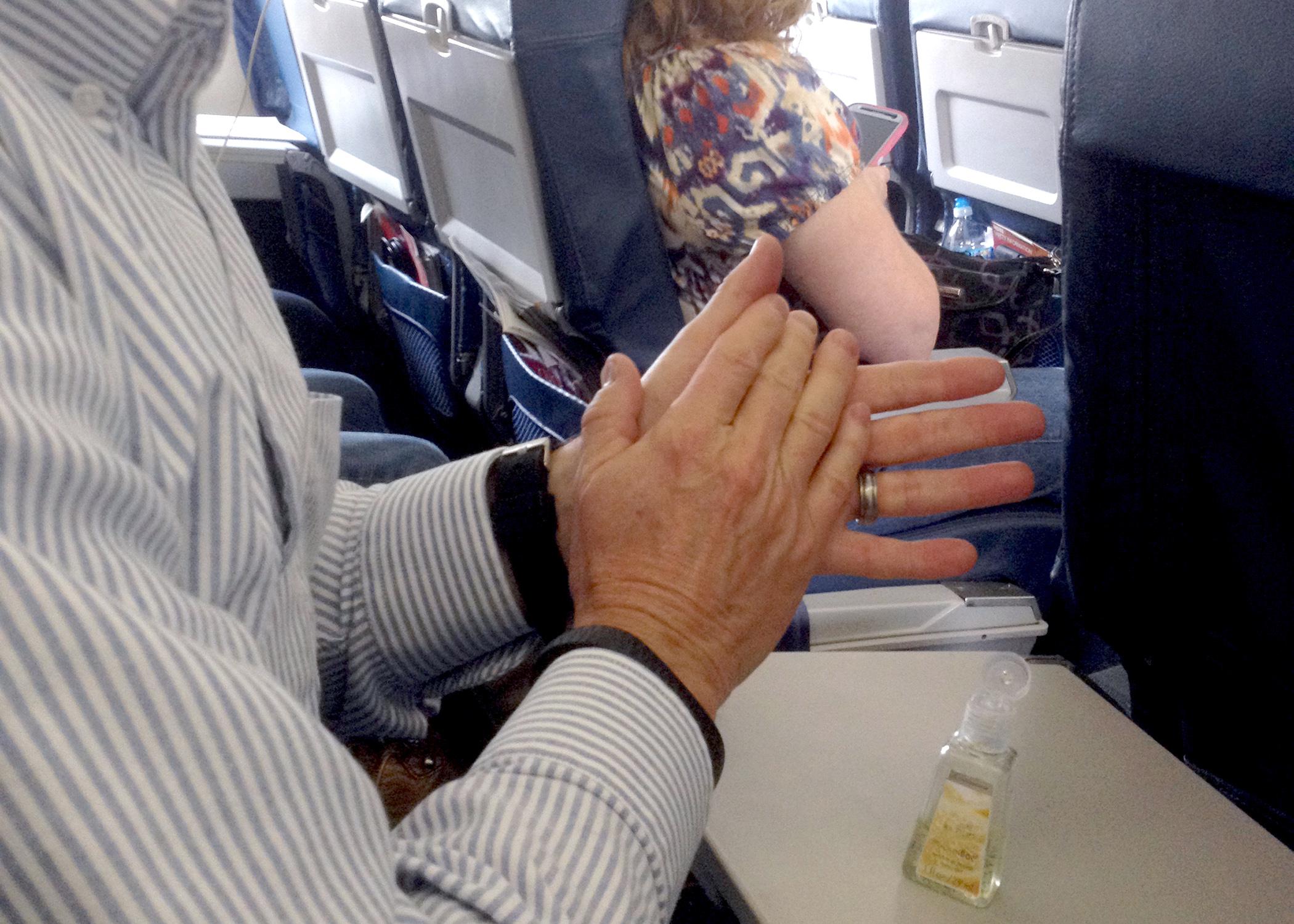Information Possibly Outdated
The information presented on this page was originally released on November 14, 2014. It may not be outdated, but please search our site for more current information. If you plan to quote or reference this information in a publication, please check with the Extension specialist or author before proceeding.
Hand-washing, vaccinations are top illness preventions
MISSISSIPPI STATE -- Keeping healthy over the holidays is all about the germs.
David Buys, health specialist with the Mississippi State University Extension Service, said frequent, proper hand-washing and a flu shot are the best prevention tools.
“Flu and respiratory illnesses are the most common sicknesses in the winter, and they are both transmitted by mucus,” he said. “Viruses and bacteria are transmitted when somebody coughs or sneezes on their hand, and you touch their hand or an object they have touched, such as a doorknob, and then touch your mouth or nose.”
Buys urged everyone to get the flu vaccine, not just children, the elderly and people with compromised immune systems. In addition, limit exposure to people who are sick, and wash hands frequently with soap and water. Use an alcohol-based hand sanitizer if soap and water are not available.
Romona Edge, Extension agent in Itawamba County, reminds everyone to wash their hands for at least 20 seconds before eating and after using the bathroom, coughing, sneezing and blowing the nose.
“Hand-washing is the No. 1 prevention of infection and flu this time of year. If you cannot wash your hands, take a hand sanitizer,” Edge said. “These are small and inexpensive. I have hand sanitizer with me all the time. I carry it in my pocket or purse and have a bottle in my car.”
After washing hands, it is important to keep them clean. Edge said to open the bathroom door with the paper towel used to dry the hands. This precaution prevents hands from being contaminated by germs left on frequently handled surfaces.
Buys said healthy bodies are less susceptible to sickness, and stress can lower the body’s ability to fight off sickness.
“When our bodies are under stress, such as from holiday travel or activities, our immune systems are less able to respond to germs,” he said. “Our bodies respond differently to different viruses and bacteria, but the general health of our bodies can determine how we respond to exposure.”
While cold weather does not make a person sick, it does tend to encourage people to stay indoors. There is a higher rate of disease exposure in closed environments, and a person who is sick has a much greater chance of spreading that illness to others.
In addition to getting children their proper vaccinations on schedule, parents should limit their young children’s exposure to potentially sick people.
“Don’t allow young babies to be passed around by people who may be sick. It is especially important to be mindful of this in places like church and at large holiday gatherings,” Buys said.
Cold and flu germs have the potential to survive outside the body for up to 48 hours. Once a person is exposed to these germs, symptoms usually appear within 48 hours, and that person can remain contagious for as long as seven days.
A wealth of health and prevention information is available online from the MSU Extension Service, the Centers for Disease Control and Prevention, National Institutes of Health and others.




